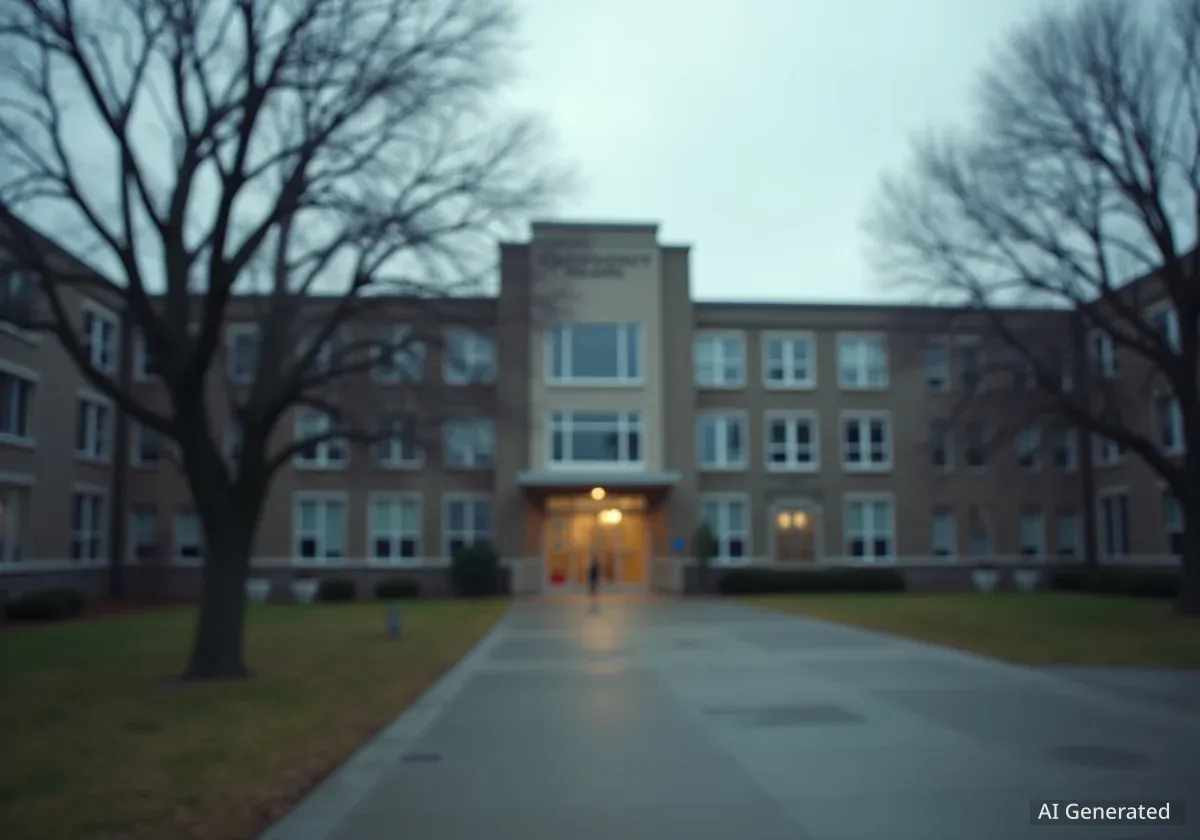Des Moines Public Schools has placed its Chief Academic Officer, Robert Lundin, on paid administrative leave, marking the second time in less than a month that a top-level administrator has been removed from their duties under similar circumstances. District officials confirmed the action but have declined to provide a reason for the decision, citing personnel confidentiality.
Key Takeaways
- Robert Lundin, Chief Academic Officer for Des Moines Public Schools, was placed on paid administrative leave on October 6.
- The school district officially confirmed the leave on October 21 but has not disclosed the reason.
- This is the second high-level administrator in the district to be placed on leave within a one-month period.
- Officials have stated the situation is a "personnel matter" and will not be providing further comment.
Second Top Administrator Sidelined
Des Moines Public Schools (DMPS), one of Iowa's largest school districts, is navigating internal turmoil as another member of its leadership team has been placed on leave. Robert Lundin, who holds the critical role of Chief Academic Officer, was put on paid administrative leave effective October 6. The district, however, did not publicly acknowledge the move for over two weeks.
The confirmation came on October 21 from district spokesperson Phil Roeder, who provided limited details about the circumstances surrounding Lundin's sudden absence. This development has raised questions among parents and staff, as it follows a similar action against another top administrator just weeks prior.
District Remains Silent on Details
When asked for clarification on the reasons behind the decision, the district has maintained a firm stance of non-disclosure. This lack of transparency is standard in employee matters but adds to the uncertainty within the school community.
"(I)t is a personnel matter, and we have nothing further to add at this time," Roeder stated in a message, effectively closing the door on further inquiries.
This official response leaves the public to speculate on the nature of the issue, whether it relates to performance, policy, or other internal conflicts. Without more information, the community is left without answers regarding the leadership overseeing their children's education.
Timeline of Events
- October 6: Robert Lundin is placed on paid administrative leave.
- October 21: The district officially confirms Lundin's leave status after inquiries.
- Late September/Early October: An unnamed top administrator was also placed on leave, establishing a pattern.
The Role of the Chief Academic Officer
The position of Chief Academic Officer is fundamental to the operation and success of any school district. This individual is typically responsible for the vision, planning, and execution of all educational programs. The role involves overseeing curriculum development, instructional standards, and academic assessments for all students from kindergarten through high school.
Key responsibilities often include:
- Ensuring curriculum aligns with state and federal standards.
- Implementing new teaching methodologies and technologies.
- Analyzing student performance data to drive academic improvement.
- Supervising principals and other academic staff.
- Managing the budget for academic programs.
Lundin's absence creates a significant leadership vacuum in the department that directly impacts teaching and learning across the district. It is unclear who has assumed his duties or how long the administrative leave is expected to last. Such instability at the top can disrupt long-term academic planning and staff morale.
A Pattern of Leadership Changes
The action against Lundin is not an isolated incident. It is the second time in recent weeks that a senior DMPS official has been placed on leave. This pattern suggests potential systemic issues within the district's central administration, though the connection between the two cases, if any, is unknown. Such repeated disruptions can erode public trust and create an atmosphere of instability for educators and families who rely on consistent leadership.
Implications for the School District
Whenever a high-ranking official is abruptly removed from their post, it sends ripples throughout the organization. For Des Moines Public Schools, the immediate concern is maintaining continuity in its academic strategy. With the school year well underway, having the top academic leader sidelined can complicate the implementation of key initiatives and support for teachers and principals.
The district's silence, while legally prudent in personnel matters, presents its own set of challenges. It can fuel rumors and undermine confidence in the school board and superintendent's office. Parents and taxpayers may question the stability of the district's leadership and whether larger, unaddressed problems exist.
Navigating Personnel Privacy and Public Accountability
School districts, as public entities, often face a difficult balancing act. On one hand, they have a legal and ethical obligation to protect the privacy of their employees. Disclosing details of a personnel investigation or disciplinary action could lead to legal repercussions.
On the other hand, they are accountable to the public they serve. The performance and conduct of top administrators, whose salaries are funded by taxpayers, are matters of legitimate public interest. The community has a right to know that the district is being managed effectively and that its leaders are meeting expectations.
This situation highlights the inherent tension between an individual's right to privacy and the public's right to transparency. As the district continues to state it is a "personnel matter," it is walking a fine line that may frustrate community members seeking reassurance about the state of their schools.
For now, the Des Moines Public Schools community is left waiting for more information. The future of Robert Lundin's role and the reasons for his leave remain confidential, leaving a critical leadership position in limbo.





